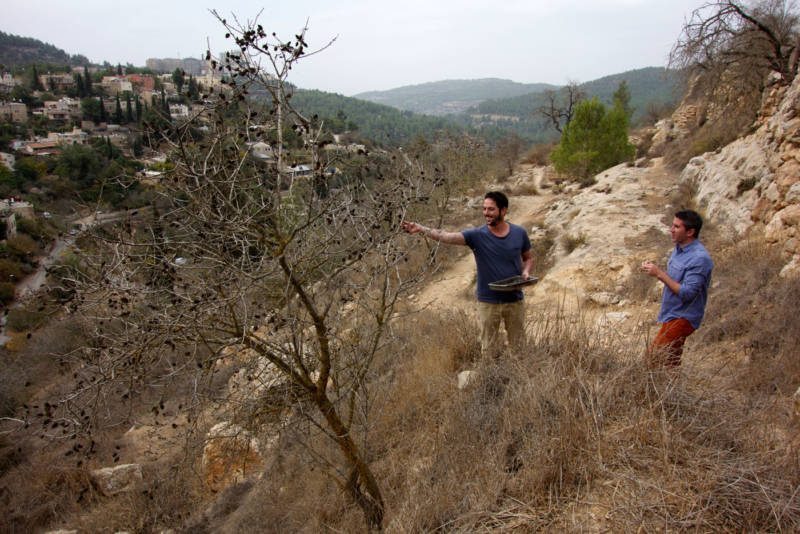My husband has a gag record called “What I Like About Jew,” which he now plays exclusively on Jewish holidays. One track features a pop culture-garbled recounting of Jewish history that wickedly sums up the format of holiday celebrations thus: “They tried to kill us. We survived. Let’s eat.” This funny and apt conflation of food and history came to mind while I watched Roger Sherman’s new documentary, In Search of Israeli Cuisine. The film follows Pittsburgh-based, James Beard award-winning chef Michael Solomonov as he travels the length and breadth of Israel trying to nail down a definition of a food influenced by a diaspora that spanned the former Soviet Union, Europe, the Middle East and beyond.
In Search of Israeli Cuisine is one of three food-related films featured at this year’s San Francisco Jewish Film Festival, which runs July 21 through August 7, 2016 at locations across the Bay. The others stick to subjects that are obvious, matzo, and fascinatingly controversial, hummus. All three films are really fun and enlightening, each in its own way.
My favorite by far is In Search of Israeli Cuisine, mostly because it contains so many twists as Solomonov delves deep into Jewish cooking traditions and the fascinating histories with which they are freighted. He notes the country itself is the size of New Jersey but contains multitudes: a long coastline, a mountainous region, the desert, a religious capital and a secular center. Israel somehow brings together the contradictory impulses of old and new within its food, the observations of ancient traditions and practices alongside the fusion of ingredients, spices and techniques from around the world.
The film visits world-class chefs in gorgeous settings who are serving up fresh local ingredients to an appreciative population. Interestingly, the country's food boom has only occurred within the last few decades. Many of the chefs interviewed attribute this to survivor guilt, but it may also be a function of newfound affluence. Food as a lifestyle is a recent luxury and modern Israelis are working hard to reverse some of the practices and misconceptions about food (and wine) that formed during the country's infancy.
